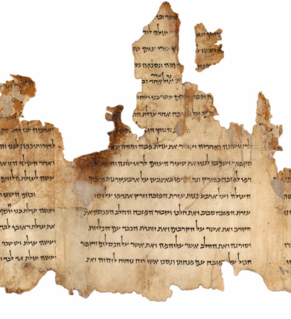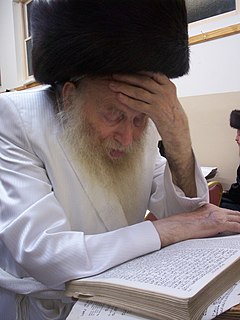Explanation
While the Chabad Rebbes would deliver their discourses, certain disciples with eidetic memory were appointed to memorise every word they heard. This is known as the role of the choizer . After consultation with other choizrim (plural of choizer), the choizer would typically then transcribe the words that he remembered, and this transcript, known as a hanocho (pl. hanochos), was then released for public study. The hanochos of Rabbi Menachem Mendel Schneerson's talks are available in the Sichos Kodesh and Hisvaduyos series. The former were produced by Vaad Hanachos Hatemimim, and the latter by Vaad Hanachos Belahak .
Choizer lit. "one who reviews," pl. choizrim is a title that refers to a rabbi who memorizes the teachings of one of the Rebbes of the Chabad-Lubavitch Hasidic movement. This term is not unique to that movement.

Rabbi Menachem Mendel Schneerson, known to many as the Lubavitcher Rebbe or simply as the Rebbe, was a Russian Empire–born American Orthodox Jewish rabbi, and the last rebbe of the Lubavitcher Hasidic dynasty. He is considered one of the most influential Jewish leaders of the 20th century.
The other type of hanochos were those made in preparing Likkutei Sichos , Schneerson's largest and most monumental work. For this task, Schneerson's talks (by his own instruction) were not just recorded word for word, but rearranged and fleshed out according to the judgment of the meinichim. Often several related talks from different years were merged. On many occasions Rabbi Schneerson was not satisfied with the text as submitted, and it had to be reworked several times. The same process was repeated for the Rebbe's smaller Maamorim Melukat, a collection of Schneerson's Chassidic discourses. These often lengthy talks and discourses were always submitted to Rabbi Schneerson for a final editing, and then they released for public study.
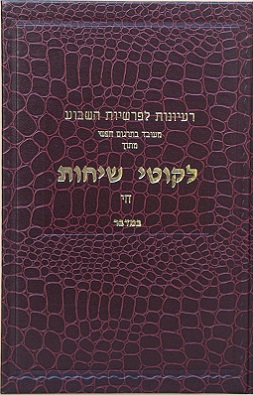
Likkutei Sichos, literally, "Collected Talks" contains both the scope and the core of the teachings of the Lubavitcher Rebbe, Rabbi Menachem Mendel Schneerson, and is the most authoritative source text for the Rebbe's unique, original, and often revolutionary explanation of Judaism.

Menachem Mendel Schneersohn also known as the Tzemach Tzedek was an Orthodox rabbi, leading 19th-century posek, and the third Rebbe of the Chabad Lubavitch chasidic movement.

Yosef Yitzchak Schneersohn was an Orthodox rabbi and the sixth Rebbe of the Chabad Lubavitch chasidic movement. He is also known as the Frierdiker Rebbe, the Rebbe RaYYaTz, or the Rebbe Rayatz. After many years of fighting to keep Orthodox Judaism alive from within the Soviet Union, he was forced to leave; he continued to conduct the struggle from Latvia, and then Poland, and eventually the United States, where he spent the last ten years of his life.

Kehot Publication Society is the publishing division of the Chabad-Lubavitch movement.
Mashpia lit. "person of influence", pl. Mashpi'im is the title of a Hasidic rabbi who serves as a spiritual mentor, whose main influence and teachings are in matters of the worship of God, the correction of virtues and spiritual elevation.

Chabad messianism, or Lubavitch messianism, generally refers to the passion among adherents of the Chabad movement regarding the coming of the Messiah and their goal to raise awareness that his arrival is imminent. In addition, the term also refers more specifically to the belief that Rabbi Menachem Mendel Schneerson is the Messiah.
Reb Yoel Kahan is a senior Chabad rabbi, who served as the leading Choizer and Meiniach for the late Lubavitcher Rebbe, Rabbi Menachem Mendel Schneerson. He served in this role from the beginning of the Rebbe's leadership in 1950 until his death in 1994. Today he continues to serve as the senior Mashpia in the central Lubavitcher yeshiva at 770 Eastern Parkway. His position as leading Choizer and Meiniach makes him the default authority on the Rebbe's teachings specifically, and he is universally recognized as the greatest scholar of general Chabad Chassidic doctrine and thought. He is referred to familiarly amongst Chabad Chasidim as Reb Yoel. He is the son of Refoel Nachman (Folle) Kahn, author of Shemu'os VeSippurim. He has no children.

Mitzvah Campaigns, or Mivtzo'im refer to the various mitzvah campaigns launched by the Lubavitcher Rebbe, Rabbi Menachem Mendel Schneerson, for observance by all Jews. During the years 1967 to 1976, Rabbi Schneerson called all Jews to observe ten basic "beginner's mitzvot"— which, because of their centrality to the Torah's guide to life, are ideally suited for a first experience of the mitzvah connection. In the years that followed there were campaigns for additional mitzvot as well.

Simon Jacobson is the author of Toward a Meaningful Life, founder of The Meaningful Life Center and publisher of the Yiddish English weekly, The Algemeiner Journal. Jacobson is a member of the Chabad-Lubavitch movement.

Maamarim/Ma'amorim in Chabad Hasidism are the central format texts of in-depth mystical investigation in Hasidic thought. In Chabad philosophy, the textual format of the Maamar is used in a great number of published works.

Chabad philosophy comprises the teachings of the leaders of Chabad-Lubavitch, a Hasidic movement. Chabad Hasidic philosophy focuses on religious concepts such as God, the soul, and the meaning of the Jewish commandments.
Vaad Talmidei Hatmimim Haolami, is a student organization of the worldwide Chabad Lubavitch Yeshiva network. The Vaad was established in 2001 under the auspices of the Central Lubavitch Yeshiva faculty. Its central office is located at Lubavitch World Headquarters and is directed by Rabbi Tzvi Altein. The regional office in Israel oversees activities for the Israeli Yeshiva network. The Vaad is affiliated with Agudas Chasidei Chabad, the umbrella organisation of the Chabad Lubavitch movement.

Chabad customs and holidays are the practices, rituals and holidays performed and celebrated by adherents of the Chabad-Lubavitch Hasidic movement. The customs, or minhagim and prayer services are based on Lurianic kabbalah. The holidays are celebrations of events in Chabad history. General Chabad customs, called minhagim, distinguish the movement from other Hasidic groups.

Toras Chaim is a two-volume work of Hasidic discourses on the books of Genesis and Exodus by the second Chabad Rebbe, Rabbi Dovber Schneuri. The work is arranged in a similar fashion as Likutei Torah/Torah Or, a fundamental work on Chabad philosophy authored by Rabbi Dovber's father, Rabbi Shneur Zalman of Liadi, the founder of the Chabad movement. Both works are arranged according to the weekly Torah portion.
Shaina Horenstein was the youngest daughter of Rabbi Yosef Yitzchak Schneersohn, the sixth Rebbe of the Chabad Hasidic movement. In the Chabad community, she is referred to as Rebbitzin Shaina.
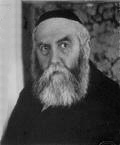
Yud Beis–Yud Gimmel Tammuz, the 12th and 13th days of Tammuz on the Hebrew calendar, are celebrated as a holiday by the Chabad Hasidic community. The holiday commemorates the liberation of Rabbi Yosef Yitzchak Schneersohn, the sixth Chabad Rebbe, from Soviet imprisonment. Schneersohn was born June 21, 1880. The day is marked by public gatherings, additional study and prayer.
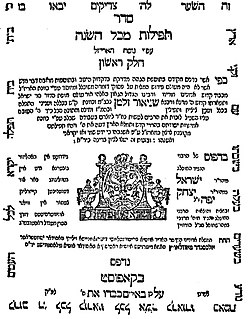
Siddur Im Dach is a Hasidic prayer book written by Rabbi Schneur Zalman of Liadi, the first Rebbe of the Chabad-Lubavitch movement. Accompanying the prayers are Hasidic discourses written by Rabbi Schneur Zalman.
Yud Shvat is a significant date on the Chabad Hasidic calendar. It is the yahrtzeit or anniversary of passing of the sixth Chabad Rebbe, Rabbi Yosef Yitzchak Schneersohn (1880–1950). The day also marks the formal acceptance of leadership in 1951 by the seventh Rebbe, Rabbi Menachem Mendel Schneerson (1902–1994). On Yud Shvat, Rabbi Menachem Mendel formally accepted the leadership of Chabad-Lubavitch movement with a public address and Hasidic discourse (maamar) at a gathering marking the first anniversary of his predecessor’s passing.
